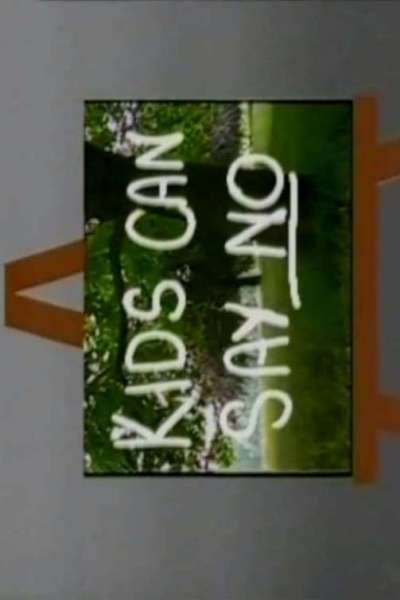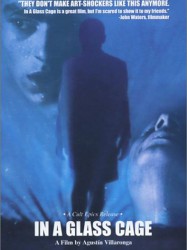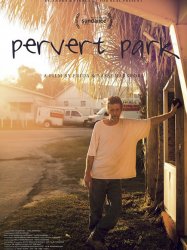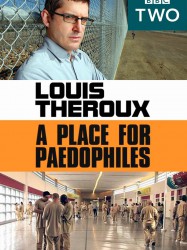Kids Can Say No est un film Britannique avec Rolf Harris
Kids Can Say No (1985)

Si vous aimez ce film, faites-le savoir !
Kids Can Say No! is a 1985 British short educational film produced and directed by Jessica Skippon and written by Anita Bennett. It is intended to teach children between ages five and eight how to avoid situations where they might be sexually abused, how to escape such situations, and how to get help if they are abused. In the film, Australian celebrity Rolf Harris is in a park with a group of four children and tells them about proper and improper physical intimacy, which he calls "yes" and "no" feelings. The film has four role-playing scenes in which children encounter pedophiles, with Harris and the children discussing each scene.
Harris said that he came up with the idea for the film on a 1982 Canadian tour when he saw Vancouver's Green Thumb Theatre production of Feeling Yes, Feeling No, a play about child sexual abuse. Kids Can Say No!, released in October 1985 on VHS in the United Kingdom, was the first British children's film about sexual abuse and was purchased by police forces, educational institutions, and libraries across Europe. Upon the film's release, The Times obtained opinions from four sexual-abuse experts, who unanimously opposed using Kids Can Say No! or any other film to teach children about the subject. The Australian Broadcasting Corporation received a positive response to its 1988 broadcast of Kids Can Say No! and therefore broadcast it a second time that year. Harris and Skippon collaborated on the 1986 sequel Beyond the Scare, which advises teachers about what to do if a child discloses abuse. Showings of Kids Can Say No! eventually decreased as VHS became less popular.
Kids Can Say No! resurfaced in 2014, when Harris was prosecuted for twelve counts of indecently assaulting young girls. The prosecutors found Kids Can Say No! on YouTube and wanted to show it at trial to illustrate its unintentional irony, but the film was not admitted as evidence. Harris was found guilty of all counts. During the trial, it was learned that, while Harris was filming Kids Can Say No!, he was in the midst of a casual sexual relationship with his daughter Bindi's best friend and, by its release, he had committed nine of the twelve assaults. According to Richard Guilliatt and Jacquelin Magnay in an article in The Australian, Harris' campaign against pedophilia in Kids Can Say No! can "be seen in retrospect as either monumental self-delusion or a sign of deep, self-lacerating guilt".
Acteurs

Rolf Harris
(Lui-même)

Graham Linehan
(Lui-même)
Commentaires
Postez un commentaire :
Suggestions de films similaires à Kids Can Say No
Il y a 4 films ayant les mêmes acteurs, 9091 films qui ont les mêmes thèmes (dont 22 films qui ont les mêmes 4 thèmes que Kids Can Say No), pour avoir au final 70 suggestions de films similaires.Si vous avez aimé Kids Can Say No, vous aimerez sûrement les films similaires suivants :

Just, Melvin: Just Evil (2000)
, 1h36Origine Etats-Unis
Genres Documentaire, Policier
Thèmes L'enfance, Maladie, Sexualité, La pédophilie, Documentaire sur le droit, Documentaire sur la santé, Documentaire sur la maltraitance des enfants, Folie, Le handicap, Maltraitance des enfants
Note69%





Whitney, at the time a Wall Street executive, returns to his rural hometown of Carlotta, California, and interviews his family members about his maternal stepgrandfather, Melvin E. Just. Just sexually abused 10 of Whitney's relatives, including his mother, uncle, aunts and step-aunts, some as young as 2 years old. The consequeneces have resulted in dysfunction spanning three generations of the family. Whitney reveals he was also molested by his uncle, who now lives incestuously with his half-sister. Whitney's aunts discuss their struggles with alcohol and drug addiction, and bouts of homelessness and prostitution.

Prison de cristal (1986)
, 1h50Réalisé par Agustí Villaronga
Origine Espagne
Genres Drame, Thriller, Horreur
Thèmes L'adolescence, L'enfance, La famille, Maladie, Sexualité, Le suicide, Le viol, BDSM, Homosexualité, La sexualité des mineurs, La pédophilie, Folie, Le handicap, Politique, Maltraitance des enfants, LGBT, LGBT
Acteurs Günter Meisner, Marisa Paredes
Note67%





Klaus est un ancien tortionnaire de camp de concentration. Il était chargé de l'exécution des enfants et assouvissait ainsi ses penchants pédophiles. Après la guerre et réfugié en Espagne il tente de refaire sa vie. Il se marie et est père d'une petite fille, cependant il ne peut résister à ses pulsions sadiques et torture des garçons qu'il séquestre dans la cave de sa maison. Rongé de remords, il veut se suicider en se jetant du haut d'une tour mais il survit et reste totalement paralysé et enfermé dans une machine qui le maintient en vie, un poumon d'acier.

Nefarious: Merchant of Souls (2011)
, 1h36Réalisé par Benjamin Nolot
Origine Etats-Unis
Genres Documentaire, Policier
Thèmes L'enfance, Esclavagisme, Sexualité, Erotique, La pédophilie, Prostitution, Documentaire sur le droit, Documentaire sur une personnalité, Documentaire sur la prostitution, Documentaire sur la maltraitance des enfants, Maltraitance des enfants
Acteurs Bill Oberst Jr.
Note73%





The first scene of the film is a reenactment of a kidnapping. A girl is kidnapped and brought to the apartment of a criminal organization, where she is confined with other girls in a room with a creaky ceiling lit by a flickering lightbulb. The girls are naked and cry from fear as men examine them and shout commands and threats at them. One girl is dragged away into another room. The girls are then brutally abused until they become sexually submissive. These events take place in a small European town, possibly in Moldova. The film asserts that 10% of the population of Moldova has been sexually trafficked. From there, the film tracks the girls through Serbia and Croatia to Amsterdam's red-light district and markets in Berlin and Las Vegas. Among legal prostitution in cities, the slavery goes undetected. Slaves are depicted in confinement, at their places of work, and as they are sold. Many of the girls are orphans and all are either initially kidnapped or tricked into forced prostitution. The methods that the traffickers use to keep the girls include hard drugs, mind control, and both sexual and physical abuse.

Passion Despair (2011)
, 1h33Genres Documentaire
Thèmes L'enfance, Maladie, Sexualité, La pédophilie, Documentaire sur l'art, Documentaire sur le droit, Documentaire sur une personnalité, Documentaire sur la santé, Documentaire sur la maltraitance des enfants, Folie, Le handicap, Maltraitance des enfants

Pas ma vie (2011)
, 1h23Réalisé par Richard Young
Origine Etats-Unis
Genres Documentaire, Policier
Thèmes L'enfance, Esclavagisme, Maladie, Sexualité, Erotique, La pédophilie, Prostitution, Documentaire sur le droit, Documentaire sur une personnalité, Documentaire sur la prostitution, Documentaire sur la santé, Documentaire sur la maltraitance des enfants, Folie, Le handicap, Maltraitance des enfants
Acteurs Glenn Close
Note77%





Ce film dépeint les pratiques cruelles et déshumanisantes de la traite des êtres humains et de l'esclavage moderne à l'échelle mondiale. Filmé sur cinq continents, dans une douzaine de pays, "Not My Life" emmène le spectateur dans un monde où des millions d'enfants sont exploités via un panel stupéfiant de pratiques, incluant le travail forcé, le tourisme sexuel, l'exploitation sexuelle, et les enfants soldats.

Easter Bunny Kill! Kill! (2006)
, 1h30Réalisé par Chad Ferrin
Origine Etats-Unis
Genres Thriller, Horreur
Thèmes L'enfance, La famille, Sexualité, La pédophilie, Prostitution, La violence conjugale, Le handicap, Maltraitance des enfants
Acteurs Trent Haaga
Note47%





The night before Easter, a lowlife named Remington dons an Easter Bunny mask, and robs a convenience store with a shotgun, shooting the clerk in the mouth. Remington is then revealed to have charmed his way into the life of widow Mindy Peters, a nurse who lives with her cerebral palsy-afflicted son Nicholas, who Remington torments when Mindy is not around. While taking out the garbage, Nicholas befriends a disfigured vagrant who gives him a rabbit he claims is an Easter Bunny. Nicholas decides to keep the rabbit a secret, but it is discovered by Remington, who threatens to kill it if Nicholas says anything bad about him to Mindy.

Pervert Park (2014)
Genres Documentaire, Policier
Thèmes L'enfance, Maladie, Sexualité, La pédophilie, Documentaire sur le droit, Documentaire sur la santé, Documentaire sur la maltraitance des enfants, Folie, Le handicap, Maltraitance des enfants
Note69%





Florida Justice Transitions abrite 120 délinquants sexuels condamnés. Comme dans de nombreux autres États américains, les délinquants sexuels ne sont pas autorisés à vivre à moins de 300 mètres des lieux fréquentés par les enfants. Pour cette raison, de nombreux délinquants sexuels vivent sous des ponts ou dans des bois – ou dans le parc à roulottes Florida Justice Transitions – connu sous le nom de Pervert Park. Les crimes commis par les résidents vont de simples délits à des actes horribles insupportables à envisager.
 , 1h
, 1hOrigine Royaume-uni
Genres Documentaire
Thèmes L'enfance, Maladie, Sexualité, La pédophilie, Documentaire sur le droit, Documentaire sur une personnalité, Documentaire sur la santé, Documentaire sur la maltraitance des enfants, Folie, Le handicap, Hôpital psychiatrique, Maltraitance des enfants
Acteurs Louis Theroux
Note73%






Délivrez-nous du mal (2006)
, 1h41Origine Etats-Unis
Genres Documentaire, Policier
Thèmes L'enfance, Religion, Sexualité, Le viol, La pédophilie, Documentaire sur le droit, Documentaire sur une personnalité, Documentaire sur la religion, Documentaire sur la maltraitance des enfants, Maltraitance des enfants
Acteurs Jeff Anderson
Note78%





Prêtre catholique irlandais venu en Californie, Oliver O'Grady, ou Ollie, a violé des dizaines d'enfants des années 1970 aux années 1990. Le film suit chronologiquement son histoire, par le témoignage de trois de ses victimes, deux femmes et un homme, de parents de victimes, d'Oliver O'Grady lui-même, et de plusieurs autres personnes, dont le père Thomas Doyle, prêtre qui s'attache à ce que l'Église fasse face à ses responsabilités dans ce domaine.

Singapore Sling (1990)
, 1h51Origine Grece
Genres Drame, Thriller, Comédie, Horreur, Policier
Thèmes L'enfance, Esclavagisme, La famille, Maladie, Psychologie, Sexualité, Le viol, Bisexualité, Erotique, BDSM, Homosexualité, La pédophilie, Folie, Le handicap, Maltraitance des enfants, LGBT, LGBT
Note64%





Un homme part à la recherche de sa fiancée disparue. Il aboutit dans une maison où vivent une mère et sa fille. Elles le découvrent, le séquestrent, et lui font subir divers sévices.
 Connexion
Connexion